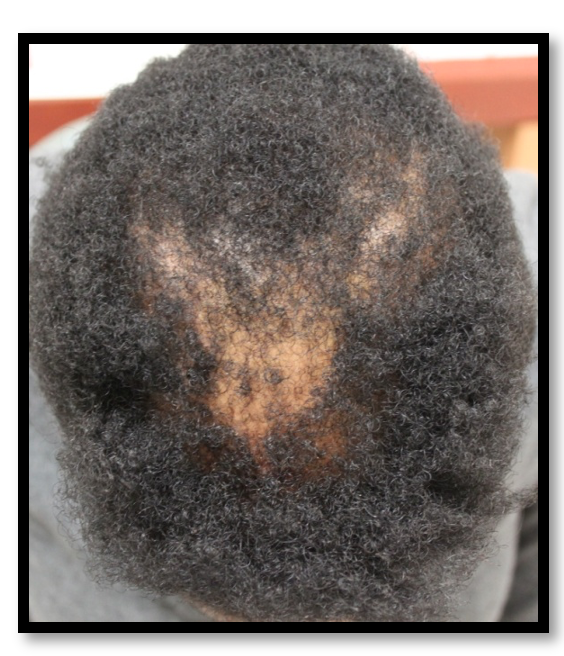The Possible Link Between Breast Cancer and Central Centrifugal Cicatrical Alopecia
Women with CCCA May be At a 3 Fold Increased Risk for Breast Cancer.
Central centrifugal cicatricial alopecia (CCCA) is a scarring alopecia that affects black women age 35-60. A new study from the University of Pennsylvania leads us in a potentially new direction in understandng comorbidies associated with CCCA.
A patient with typical central hair loss that characterizes CCCA. A new study suggests women with CCCA are at increased risk for breast cancer.
The researchers performed a cross-sectional study of black women aged 18 years or older who presented to the University of Pennsylvania Health System over the 4 year period April 13, 2016, to April 13, 2020. Patients with CCCA were identified in electronic databases based on coding. Patients with breast cancer or colon cancer were also identified by standard coding.
There were over, 225,000 black women treated during this four year period within the University of PennsylvaniaHealth System. There were 742 patients identified with a clinical diagnosis of CCCA. 4.7 % of these women had a diagnosis of breast cancer compared to 1.8 % of controls. This corresponded to an odds ratio of 2.61. 149 of the 742 patients had a biopsy that confirmed the diagnosis of CCCA. 4.4 % of these 149 patients had a diagnosis of breast cancer corresponding again to an evaluated odds ratio of 2.49.
There was no increased risk of colon cancer among women with CCCA.
Summary and Comment
This is an important study and opens the door for other confirmatory studies. Theses data suggest that women with CCCA may be an increased risk for breast cancer.
Reference
Brown-Korsah JB et al. Association of breast and colorectal cancer in patients with central centrifugal cicatricial alopecia: A retrospective, cross-sectional pilot study. Journal of the American Academy of Dermatology 2021 Mar;84(3):859-860.
This article was written by Dr. Jeff Donovan, a Canadian and US board certified dermatologist specializing exclusively in hair loss.

